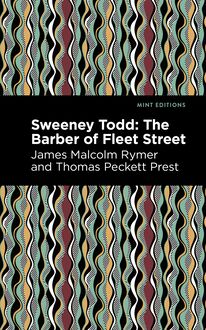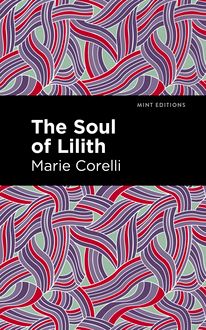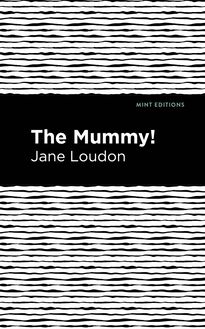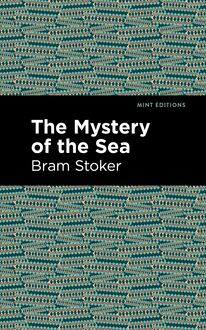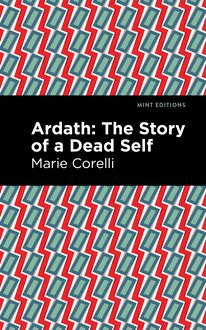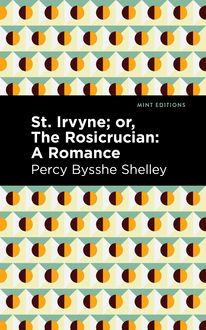-
 Univers
Univers
-
 Ebooks
Ebooks
-
 Livres audio
Livres audio
-
 Presse
Presse
-
 Podcasts
Podcasts
-
 BD
BD
-
 Documents
Documents
-
- Cours
- Révisions
- Ressources pédagogiques
- Sciences de l’éducation
- Manuels scolaires
- Langues
- Travaux de classe
- Annales de BEP
- Etudes supérieures
- Maternelle et primaire
- Fiches de lecture
- Orientation scolaire
- Méthodologie
- Corrigés de devoir
- Annales d’examens et concours
- Annales du bac
- Annales du brevet
- Rapports de stage
La lecture à portée de main
Vous pourrez modifier la taille du texte de cet ouvrage
Découvre YouScribe en t'inscrivant gratuitement
Je m'inscrisDécouvre YouScribe en t'inscrivant gratuitement
Je m'inscrisEn savoir plus
Vous pourrez modifier la taille du texte de cet ouvrage
En savoir plus

Description
Set in 2126, The Mummy!: A Tale of the Twenty-Second Century explores a society led by advanced technology but driven by ego, greed and self-preservation. It’s a vivid clash of genres featuring an old tale with a new twist.
In the distant future, society has become enthralled by technology. It’s an integral part of life that has changed the way humans interact. Autonomous machines have a visible presence, taking critical jobs in the workforce. Doctors and lawyers have been replaced by steam-powered devices, as well as farmers who no longer plant or plow. The author presents an early form of the internet that can connect anyone at any time. With all these advancements, mankind has become detached and corrupt. It’s up to Cheops, a reanimated corpse, to make a way in this questionable age.
Jane Loudon was a young visionary writer who was ahead of her time. Her version of The Mummy features a speculative world that eerily embodies twenty-first century society. It’s a brilliant work that exposes humanity at its core.
With an eye-catching new cover, and professionally typeset manuscript, this edition of The Mummy!: A Tale of the Twenty-Second Century is both modern and readable.
Sujets
Informations
| Publié par | Mint Editions |
| Date de parution | 24 mars 2021 |
| Nombre de lectures | 0 |
| EAN13 | 9781513276007 |
| Langue | English |
| Poids de l'ouvrage | 1 Mo |
Informations légales : prix de location à la page 0,0500€. Cette information est donnée uniquement à titre indicatif conformément à la législation en vigueur.
Extrait
The Mummy!
Jane Loudon
The Mummy! was first published in 1827.
This edition published by Mint Editions 2020.
ISBN 9781513271002 | E-ISBN 9781513276007
Published by Mint Editions ®
minteditionbooks .com
Publishing Director: Jennifer Newens
Design & Production: Rachel Lopez Metzger
Project Manager: Micaela Clark
Typesetting: Westchester Publishing Service
C ONTENTS I II III IV V VI VII VIII IX X XI XII XIII XIV XV XVI XVII XVIII XIX XX XXI XXII XXIII XXIV XXV XXVI XXVII XXVIII XXIX XXX XXXI XXXII
I
I n the year 2126, England enjoyed peace and tranquillity under the absolute dominion of a female sovereign. Numerous changes had taken place for some centuries in the political state of the country, and several forms of government had been successively adopted and destroyed, till, as is generally the case after violent revolutions, they all settled down into an absolute monarchy. In the meantime, the religion of the country had been mutable as its government; and in the end, by adopting Catholicism, it seemed to have arrived at nearly the same result: despotism in the state, indeed, naturally produces despotism in religion; the implicit faith and passive obedience required in the one case, being the best of all possible preparatives for the absolute submission of both mind and body necessary in the other.
In former times, England had been blessed with a mixed government and a tolerant religion, under which the people had enjoyed as much freedom as they perhaps ever can do, consistently with their prosperity and happiness. It is not in the nature of the human mind, however, to be contented: we must always either hope or fear; and things at a distance appear so much more beautiful than they do when we approach them, that we always fancy what we have not, infinitely superior to any thing we have; and neglect enjoyments within our reach, to pursue others, which, like ignes fatui , elude our grasp at the very moment when we hope we have attained them.
Thus it was with the people of England:—Not satisfied with being rich and prosperous, they longed for something more. Abundance of wealth caused wild schemes and gigantic speculations; and though many failed, yet, as some succeeded, the enormity of the sums gained by the projectors, incited others to pursue the same career. New countries were discovered and civilized; the whole earth was brought to the highest pitch of cultivation; every corner of it was explored; mountains were levelled, mines were excavated, and the globe racked to its centre. Nay, the air and sea did not escape, and all nature was compelled to submit to the overwhelming supremacy of Man.
Still, however, the English people were not contented:—enabled to gratify every wish till satiety succeeded indulgence, they were still unhappy; perhaps, precisely because they had no longer any difficulties to encounter. In the meantime, education had become universal, and the technical terms of abstruse sciences familiar to the lowest mechanics; whilst questions of religion, politics, and metaphysics, agitated by them daily, supplied that stimulus, for which their minds, enervated by over cultivation, constantly craved. The consequences may be readily conceived. It was impossible for those to study deeply who had to labour for their daily bread; and not having time to make themselves masters of any given subject, they only learned enough of all to render them disputatious and discontented. Their heads were filled with words to which they affixed no definite ideas, and the little sense Heaven had blessed them with, was lost beneath a mass of undigested and misapplied knowledge.
Conceit inevitably leads to rebellion. The natural consequence of the mob thinking themselves as wise as their rulers, was, that they took the first convenient opportunity that offered, to jostle these aforesaid rulers from their seats. An aristocracy was established, and afterwards a democracy; but both shared the same fate; for the leaders of each in turn, found the instruments they had made use of to rise, soon became unmanageable. The people had tasted the sweets of power, they had learned their own strength, they were enlightened; and, fancying they understood the art of ruling as well as their quondam directors, they saw no reason why, after shaking off the control of one master, they should afterwards submit to the domination of many. “We are free,” said they; “we acknowledge no laws but those of nature, and of those we are as competent to judge as our would-be masters. In what are they superior to ourselves? Nature has been as bountiful to us as to them, and we have had the same advantages of education. Why then should we toil to give them ease? We are each capable of governing ourselves. Why then should we pay them to rule us? Why should we be debarred from mental enjoyments and condemned to manual labour? Are not our tastes as refined as theirs, and our minds as highly cultivated? We will assert our independence, and throw off the yoke. If any man wish for luxuries, let him labour to procure them for himself. We will be slaves no longer; we will all be masters.”
Thus they reasoned, and thus they acted, till government after government having been overturned, complete anarchy prevailed, and the people began to discover, though, alas! too late, that there was little pleasure in being masters when there were no subjects, and that it was impossible to enjoy intellectual pleasures, whilst each man was compelled to labour for his daily bread. This, however, was inevitable, for as perfect equality had been declared, of course no one would condescend to work for his neighbour, and every thing was badly done: as, however skilful any man may be in any particular art or profession, it is quite impossible he can excel in all.
In the meantime, the people who had, though they scarcely knew why, attached to the idea of equality that of exemption from toil, found to their infinite surprise, that their burthens had increased tenfold, whilst their comforts had unaccountably diminished in the same proportion. The blessings of civilization were indeed fast slipping away from them. Every man became afraid lest the hard-earned means of existence should be torn from his grasp; for, as all laws had been abolished, the strong tyrannized over the weak, and the most enlightened nation in the world was in imminent danger of degenerating into a horde of rapacious barbarians.
This state of things could not continue; and the people, finding from experience that perfect equality was not quite the most enviable mode of government, began to suspect that a division of labour and a distinction of ranks were absolutely necessary to civilization; and sought out their ancient nobility, to endeavour to restore something like order to society. These illustrious personages were soon found: those who had not emigrated, had retired to their seats in the country, where, surrounded by their dependants, and the few friends who had remained faithful to them, they enjoyed the otium cum dignitate , and consoled themselves for the loss of their former greatness, by railing most manfully at those who had deprived them of it.
Amongst this number, was the lineal descendant of the late royal family, and to him the people now resolved humbly and unconditionally to offer the crown; imagining, with the usual vehemence and inconsistency of popular commotions, that an arbitrary government must be best for them, as being the very reverse of that, the evils of which they had just so forcibly experienced.
The prince, however, to whom a deputation from the people made this offer, happened not to be ambitious. Like another Cincinnatus, he placed all his happiness in the cultivation of a small farm, and had sufficient prudence to reject a grandeur which he felt must be purchased by the sacrifice of his peace. The deputies were in despair at his refusal; and they reurged their suit with every argument the distress of their situation could inspire. They painted in glowing colours the horrors of the anarchy that prevailed, the misery of the kingdom and despair of the people; and at last wound up their arguments by a solemn appeal to Heaven, that if he persisted in his refusal, the future wretchedness of the people might fall upon his head. The prince, however, continued inexorable; and the deputies were preparing to withdraw, when the prince’s daughter, who had been present during the whole interview, rushed forward and prevented their retreat:—“Stay! I will be your queen,” cried she energetically; “I will save my country, or perish in the attempt!”
The princess was a beautiful woman, about six-and-twenty; and, at this moment, her fine eyes sparkling with enthusiasm, her cheeks glowing, and her whole face and figure breathing dignity from the exalted purpose of her soul, she appeared to the deputies almost as a supernatural being; and regarding her offer as a direct inspiration from Heaven, they bore her in triumph to the assembled multitude who awaited their return: whilst the people, ever caught by novelty, and desirous of any change to free them from the misery they were enduring, hailed her appearance with delight, and unanimously proclaimed her Queen.
The new sovereign soon found the task she had undertaken a difficult one; but happening luckily to possess common sense and prudence, united with a firm and active disposition, she contrived in time to restore order, and to confirm her own power, whilst she contributed to the happiness of her people. The face of the kingdom rapidly changed—security produced improvement—and the self-banished nobles of the former dynasty crowding round the new Queen, she chose from amongst them the wisest and most experienced for her counsellors, and by their help compounded an excellent code of laws. This book was open to the whole kingdom; and cases being decided by principle instead of precedent, litigation was almost unkno
-
 Univers
Univers
-
 Ebooks
Ebooks
-
 Livres audio
Livres audio
-
 Presse
Presse
-
 Podcasts
Podcasts
-
 BD
BD
-
 Documents
Documents
-
Jeunesse
-
Littérature
-
Ressources professionnelles
-
Santé et bien-être
-
Savoirs
-
Education
-
Loisirs et hobbies
-
Art, musique et cinéma
-
Actualité et débat de société
-
Jeunesse
-
Littérature
-
Ressources professionnelles
-
Santé et bien-être
-
Savoirs
-
Education
-
Loisirs et hobbies
-
Art, musique et cinéma
-
Actualité et débat de société
-
Actualités
-
Lifestyle
-
Presse jeunesse
-
Presse professionnelle
-
Pratique
-
Presse sportive
-
Presse internationale
-
Culture & Médias
-
Action et Aventures
-
Science-fiction et Fantasy
-
Société
-
Jeunesse
-
Littérature
-
Ressources professionnelles
-
Santé et bien-être
-
Savoirs
-
Education
-
Loisirs et hobbies
-
Art, musique et cinéma
-
Actualité et débat de société
- Cours
- Révisions
- Ressources pédagogiques
- Sciences de l’éducation
- Manuels scolaires
- Langues
- Travaux de classe
- Annales de BEP
- Etudes supérieures
- Maternelle et primaire
- Fiches de lecture
- Orientation scolaire
- Méthodologie
- Corrigés de devoir
- Annales d’examens et concours
- Annales du bac
- Annales du brevet
- Rapports de stage
